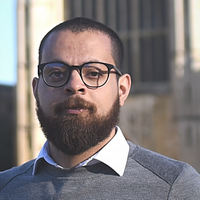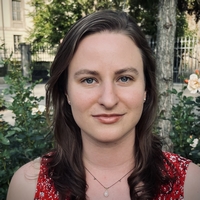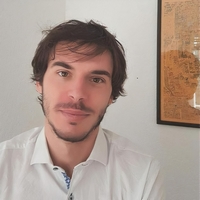
|

|

|
IUHPST Essay Prize in History and Philosophy of Science 2025
The Joint Commission of the International Union of History and Philosophy of Science and Technology (IUHPST) is pleased to announce the outcome of the competition for the fifth IUHPST Essay Prize in History and Philosophy of Science. This prize competition seeks to encourage fresh methodological thinking on the history and philosophy of science as an integrated discipline. For this round of the competition, we invited entries addressing persistent methodological challenges in integrated history and philosophy of science.
The winner of the 2025 prize is Dr. Dubian Cañas, who recently defended his PhD at Universidad Nacional Autónoma de México (UNAM), for his essay “Three epistemological desiderata for HPS practitioners.” We are also pleased to recognize as runners-up Dr. Rebecca Jackson (Durham University) and Dr. Michele Luchetti (Bielefeld University) for their essay “History and Philosophy of Measurement: Past, Present, and Future Integrations.”



Cañas’s insightful essay addresses two challenges to a genuinely integrated HPS: a purported vicious circularity between history and philosophy of science and the idea that history and philosophy, as disciplines, are metaphysically at odds with one another: history is local and pluralistic, whereas philosophy aims for general, universal truths. It proposes a novel epistemological framework to address these challenges, proposing three epistemological desiderata for HPS practitioners.
The first two desiderata address the vicious circularity challenge. The desideratum of independent historical evidence says that, even though historical case studies are theory-laden, they are not laden with the philosophical theories about science for which they serve as evidence. Moreover, any rational reconstruction of a historical case in support of a philosophical claim can be calibrated by independent historical reconstructions. Further, robust historical evidence—concordant reconstructions that coincide on their interpretation of relevant historical facts—warrant more confidence and further bolster the autonomy of historical scholarship. The desideratum of metahistorical criticism points out that, despite their disagreements, there are metahistorical criteria that most historians agree upon. These criteria—rather than the philosophical views historical cases support—can be used to adjudicate between competing historical narratives and related philosophical positions. The desideratum of disciplinary alignment says that the conflict between the history and philosophy of science only arises for absolutist philosophies of science like standard scientific realism, which says that science aims at attaining absolute truth about ultimate reality. A non-absolutist philosophy of science, such as Hasok Chang’s (2022) activist realism, which says that science aims at uncovering many truths about many realities, is compatible with the non-absolutist aims of history of science.
Cañas illustrates these desiderata using well-known instances of HPS scholarship, including Lakatos’s historiographical research programmes and the Stanford-Psillos debate about the history of caloric and its implications for selective realism. He thereby shows how they could be satisfied by new cases and applied by other HPS scholars
Jackson and Luchetti’s essay provides a masterful and original overview of integrated history and philosophy of measurement (HPM) and discusses the challenges faced by this sub-field of HPS. It outlines several strategies for using history in the service of philosophical projects and vice versa that have been deployed in the HPM literature. For instance, in addition to using history as evidence for philosophy, philosophy can be used to clarify history or critique historiography. Jackson and Luchetti also highlight challenges to HPM. For instance, institutional barriers can hinder interdisciplinary collaboration. Further, we should expand HPM beyond the physical sciences to biomedical, psychological, and social sciences, where ethical and epistemic concerns are particularly pressing. We should also adopt a more global perspective and engage with science and technology studies. Doing so promises a refined and perhaps expansive notion of what constitutes “measurement,” one that is sensitive to multiple practices and disciplinary perspectives.
Dr. Cañas and Drs. Jackson and Luchetti will present their papers in a special session at the 27th International Congress of History of Science and Technology (ICHST) in Dunedin, New Zealand (29 June–5 July 2025). This prize is administered by the Joint Commission, whose remit is to make links between the work of the two Divisions of the IUHPST, viz. the DHST (Division of History of Science and Technology) and the DLMPST (Division of Logic, Methodology and Philosophy of Science and Technology). The panel of judges for the 2025 competition consisted of: Agnes Bolinska, University of South Carolina, USA (chair); Theodore Arabatzis, National and Kapodistrian University of Athens, Greece; Riana Betzler, San José State University, USA; Marlis Hinckley, Johns Hopkins University, USA; and Karoliina Pulkkinen, University of Helsinki, Finland.
Call for Submissions (closed; deadline was 15 January 2025)
The International Union of History and Philosophy of Science and Technology (IUHPST) invites submissions for the 2025 IUHPST Essay Prize in History and Philosophy of Science. This biennial prize competition seeks to encourage fresh methodological thinking on the history and philosophy of science and related areas.
For this round of the competition, we invite entries, in the form of an essay of 5,000–10,000 words written in English, addressing persistent methodological challenges in integrated history and philosophy of science. Examples of questions that entries may address include:
- What is the role of case studies?
- Is current science so different from old science that history is irrelevant to philosophy?
- How does philosophical pluralism/monism affect the historiography of science?
- Is “scientific revolution” dead as a framing device for the history of science?
Entries may answer one of these questions or a variation thereof; they may also address another persistent methodological challenge in integrated HPS. All entries should consist of original work that has not previously been published. Entries written originally in another language should be submitted in English translation, along with the name and contact details of the translator. Entries will be judged on the following criteria, in addition to general academic quality: direct engagement with the prize topic, effective integration of historical and philosophical perspectives, and potential to provide methodological guidance for other researchers in the field.
The author of the winning entry will be invited to present the work at the 27th International Congress of History of Science and Technology in Dunedin, New Zealand, June 29 to July 5, 2025. Presenting at the Congress will be a condition of the award.
The award will carry a cash prize of 1,000 US dollars and a waiver of the Congress registration fee.
Other strong entries will also be considered for presentation at the Congress. In order to ensure this consideration, entrants should submit the entry also as a standalone paper abstract for the Congress by the deadline for that (December 1, 2024), following the standard instructions indicated on the Congress website.
Entries are invited from anyone, without restriction of age, nationality, or academic status. Co-authored work will be considered; if the winning entry is a co-authored work the cash prize will be shared out among the authors.
This prize is administered by the Joint Commission of the IUHPST, whose remit is to make links between the work of the two Divisions of the IUHPST: the DHST (Division of History of Science and Technology) and the DLMPST (Division of Logic, Methodology and Philosophy of Science and Technology).
Entries for the prize competition should be anonymized and submitted in PDF format by e-mail to the Chair of the Joint Commission, Dr. Agnes Bolinska, Department of Philosophy, University of South Carolina (bolinska [at] mailbox [dot] sc [dot] edu). Any queries should also be directed to her. The deadline for submission is 15 January 2025.